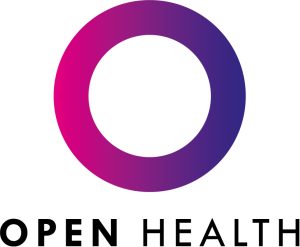Equipping your medical affairs teams with solutions to navigate the healthcare landscape
February 26, 2020 |
Dr Tyler Ray, OPEN Health Medical Communications
The healthcare landscape has experienced a significant transformation in the past two decades. The advancement in digital health technology, the availability of ‘big data’ and a focus on a value-for-patient economic environment are just some of the major contributing factors driving current trends.
The evolving changes in healthcare have highlighted the importance and relevance of medical affairs teams in the pharmaceutical and biotechnology industries. Medical affairs teams, with Medical Science Liaisons (MSLs) at their core, are now consistently recognised to be fundamental in companies’ strategies and value propositions. Traditionally, medical affairs teams and MSLs were often seen as a supporting function. However, given recent industry transformations and new requirements, medical affairs teams are now being described as the ‘third strategic pillar’ of a successful organisation and are increasingly considered to be equally as important as research and development (R&D) and commercial counterparts.1
The role of an MSL has progressively evolved since it was first established by the Upjohn Company in 1967.2 MSLs provide a crucial link between healthcare companies and healthcare decision makers, widely defined as physician, payer and patient. MSLs are a key resource within an organisation. They are central to providing scientific advice, training and insight generation, which is essential for overall company strategy development and implementation. External scientific engagement and exploration of mutual scientific and clinical interests by MSLs adds significant value to clinical practice, ultimately benefiting patients. MSLs Healthcare decision makers and providers are increasingly forming alliances with MSLs and medical affairs teams to help improve their understanding of the complex science and targeted medical treatments that are becoming widely available. These alliances are crucial for evidence- and value-based clinical decision making and deliver substantial benefits for research, healthcare education and patients.3
With such rapid changes in the industry and the increasing importance of medical affairs teams, what training programmes are needed to build a multifaceted and highly skilled team?
1 . A vision for medical affairs in 2025. https://www.mckinsey.com/industries/pharmaceuticals-and-medical-products/our-insights/a-vision-for-medical-affairs-in-2025
2 . Morgan DK et al. History and evolution of field-based medical programs. Drug Inf J 2000;34:1049–1052.
3 . Doran E et al. Empirical uncertainty and moral contest: a qualitative analysis of the relationship between medical specialists and the pharmaceutical industry in Australia. Soc Sci Med 2006;62:1510–1519.
At OPEN Health Learning & Development, we step beyond traditional industry and medical affairs training programmes by developing your team’s knowledge, competencies and confidence.
We believe that medical affairs training programmes should have a focus on:
- Learner training needs developed from thorough analyses that are aligned to the specific requirements of medical affairs business units
- Enhancing a medical affairs team’s understanding of scientific content, stakeholder management principles and information management solutions
- Skills training that allows users to meet competencies that are tailored to the core medical affairs principals of communication, science, strategy and ethics
By combining the above, drawing on best practices in adult learning theory and leveraging technologies to achieve blended learning, programmes are designed with outcomes in mind to help clients maximise their teams’ potential and act as credible partners across the healthcare community.
Your teams are your most powerful tool; equipping them with the right resources will enhance their performance and maximise their potential, allowing you to set and implement smart and effective strategies for your business.
If you would like to know more about how OPEN Health Learning & Development can work in partnership with you to execute your internal training needs, please do get in touch.
This content was provided by OPEN Health
Company Details
Latest Content from OPEN Health
OPEN X Health launches to provide data-driven creativity to the pharmaceutical industry
OPEN X Health launches to provide data-driven creativity to the pharmaceutical industry
OPEN Health Appoints Steven Duryee as Chief Operating and Transformation Officer
OPEN Health Appoints Steven Duryee as Chief Operating and Transformation Officer
Unlock possibilities: A Medical Affairs strategy fit for the future
Explore the key areas to include in a Medical Affairs strategy and plan that is fit for the future in our latest whitepaper.
OPEN Health and Nested Knowledge announce strategic research collaboration to leverage AI technologies for evidence synthesis
OPEN Health and Nested Knowledge announce strategic research collaboration to leverage AI technologies for evidence synthesis
OPEN Health unites patient engagement experts to transform the patient experience
OPEN Health, a preeminent global provider of consulting, HEOR and market access, patient engagement, and scientific and creative communications services, is bringing together experts in strategic patient innovation and engagement,...
The right measurement frameworks matter for demonstrating treatment efficacy in clinical trials for Alzheimer’s Disease
The right measurement frameworks matter for demonstrating treatment efficacy in clinical trials for Alzheimer’s Disease
OPEN Health Presenting Innovative Research on Capitalizing Data for Patient Access at ISPOR Europe
OPEN Health Presenting Innovative Research on Capitalizing Data for Patient Access at ISPOR Europe
Dom Marchant, Chief Creative Officer, joins the executive leadership team at OPEN Health with a new vision to drive the creative communications practice
Dom Marchant, Chief Creative Officer, joins the executive leadership team at OPEN Health with a new vision to drive the creative communications practice
Embracing the Patient Voice Within Publications
This whitepaper will explore multidisciplinary perspectives on how we can better engage patient communities in publications to optimize the value of their contributions, while navigating any uncertainties and reluctance from...
Navigating the nocebo effect through patient engagement is the key to setting patients up for success
If you're interested in delving deeper into this topic and understanding how patient engagement can effectively navigate the nocebo effect, we invite you to explore our latest whitepaper.





